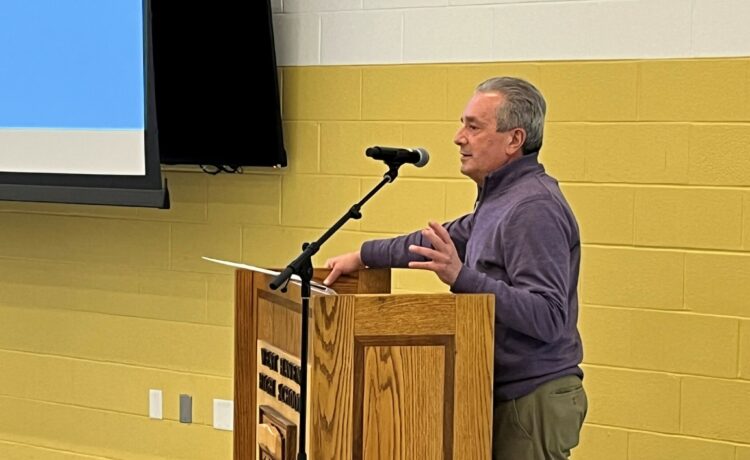WEST HAVEN — With an influx of federal funding tied to the COVID-19 pandemic, the city’s Board of Education has been able to provide more supports to students and the physical schools.
However, with that pot of money set to expire by September, the jobs of 11 academic specialists, six outreach workers, 20 part-time cleaners and eight school security guards, as well as staff members covering lunch and recess shifts, hang in the balance.
“Why should we concede it?” reasoned Superintendent of Schools Neil Cavallaro Tuesday, presenting his $112.2 million budget proposal to the Board of Education for the 2025 fiscal year, an increase of less than 3 percent over previous spending. Cavallaro requested that the board approve the proposal to the City Council.
Since the fiscal year 2017 budget cycle, West Haven’s City Council has approved a budget providing $44.13 million in local taxpayer funding for the school system; the remainder of the school district’s budget is funded by the state and other grant sources.
Cavallaro said he does not think it’s “unreasonable” to request a 2.2 percent budget increase from the city, or $46.13 million, after eight budget cycles of flat funding, especially as the temporary infusion of federal funding has assisted the district in maintaining its operations for years without requesting more from the local tax base or bonding for a number of capital improvement projects.
Cavallaro said that, in anticipation for the end of the federal pandemic relief funding, the district eliminated a number of support positions last year. However, he said he hopes the system can retain and sustain with local funding the remaining additional supports that it hired during the pandemic.
According to state data, enrollment trends in the district have not changed radically since the school district began receiving its consistent $44.1 million in funding from the city, growing by just over 100 students from the 2017-18 school year to the 2022-23 school year — from 5,861 to 5,976 students during that time. However, Cavallaro said a benefit of the federal pandemic funding is that the additional staff supports have enabled the district to have smaller class sizes, especially at the elementary level. He said the district would like to maintain those small class sizes for the benefit of students and teachers.
Board of Education member Bob Guthrie commented that maintaining smaller class sizes would be a significant budgeting priority for him.
Cavallaro said among the biggest drivers behind increasing costs, besides fixed costs such as salaries, benefits, utilities and transportation contracts, was technology.
“We received a lot of money from the state to infuse technology into our instruction. We’re three to four years removed from that and have to start a plan to replace that,” he said. He said the district “cannot go backwards” on technology, because it is now baked into school instruction.
Cavallaro said the district expects “a relatively calm” budgeting year, but with the city fulfilling the full request it would be “a really good year.”
“The least we can do is ask,” said Board of Education President Cebi Waterfield.
The school board voted unanimously to approve Cavallaro’s request. That request goes before Mayor Dorinda Borer, who will submit her first citywide recommended budget as mayor to the City Council this March before the council votes to approve a budget in spring.















